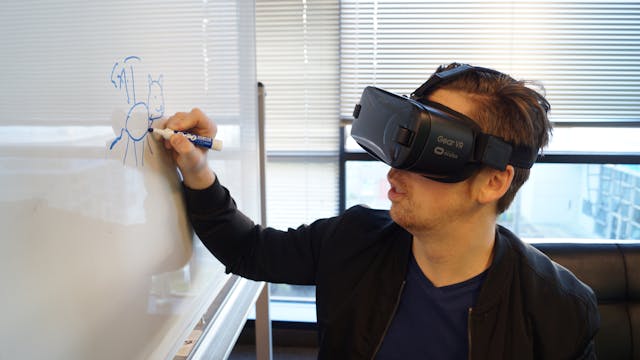Exploring The Business Applications Of Virtual Reality With Consultants
Virtual reality technology is not limited to just gaming and entertainment industries as it was in the past. Today, it is reshaping how companies behave, providing new opportunities to communicate with consumers and improve their performance. From buying a house to treating patients, industries are realizing the value of incorporating VR into operations.
This interactive technology enables organizational stakeholders to develop realistic models in active settings. From identifying potential employees via tests in a safe virtual environment to offering customers a different way to browse products, VR is emerging.
But how can businesses benefit from this exciting new technology? This is where virtual reality consultants come to the fore.
The Importance of Virtual Reality Consultants
Virtual reality consultants refer to individuals with deep knowledge of virtual reality technology. They assist organizations in adopting the technology. It is especially useful for those companies that have decided to invest in VR but are still unsure of what steps to take. These consultants assess the needs and objectives of an enterprise to advise on the most suitable VR solutions. They concentrate on developing a plan for incorporating VR into the enterprise environment.
For instance, a consultant may assist a retail store to create an online showroom. This enables customers to shop products in a 3D environment without even having to leave the comfort of their homes. Likewise, in the construction sector, consultants might utilize VR to enable architects and clients to see how new structures will look once constructed. This leads to time and resource efficiency while also improving the client’s experience through an engaging, interactive map.
Uses of VR in Business
a. Training and Education
Virtual reality is suitable for training personnel, particularly in professions where practical experience plays a vital role. For instance, medical students can use VR in mimicking surgeries, an activity that could prove costly were it to be done in real life. Additionally, incorporating XR in education can enhance learning experiences by providing immersive environments that facilitate a deeper understanding of complex subjects and practical skills.
b. Marketing and Customer Engagement
Companies incorporate VR technology in the development of visually appealing and captivating advertisements. It allows potential buyers to get a glimpse of a place they are planning to travel to or even a new car model they are planning to purchase.
c. Product Development and Prototyping
Virtual reality helps organizations to simulate new products before manufacturing or producing them in real life. This helps cut the time and cost of creating live models, thus enhancing its innovation process.
d. Remote Collaboration
With VR, people can work together in a virtual environment irrespective of their geographical location. This is especially applicable for multinational organizations that want to improve cooperation and collaboration across borders.
Conclusion
As VR technology advances, the involvement of virtual reality consultants who assist organizations to adopt this technology and remain relevant is critical. With a VR consultant, companies get VR solutions that meet their exact requirements, which can stimulate further development of the industry.
There are numerous possibilities of applying VR in the business sphere which are still waiting to be discovered in full. As more companies start to find out about what VR can offer them, the expertise of professional advisers will be an essential asset in this new frontier of the digital world.
Virtual reality is not a Hollywood fantasy; it is the present that needs to be embraced as a business tool for you.

